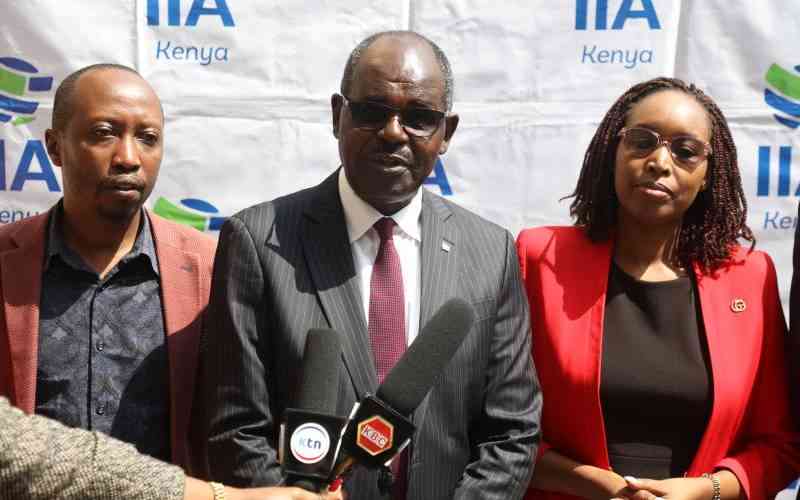
The Institute of Internal Auditors Kenya (IIA Kenya) is spearheading efforts to professionalise the internal audit practice through the development of the Internal Audit Bill, currently under drafting.
Backed by IIA Global, the initiative positions Kenya as a flagship case study for Africa, aiming to inspire similar reforms across the continent.
Speaking during the Second Chief Audit Executives Meeting in Nairobi Friday, Internal Auditor General at the National Treasury Dr Sammy Kimunguyi said the bill seeks to establish a strong legal framework that enhances the authority, independence, and accountability of internal auditors in both the public and private sectors.
If enacted, the law will regulate internal audit practices, protect auditors from victimisation, and introduce disciplinary mechanisms for practitioners who breach international standards.
The bill draws from the African Model Internal Audit Bill, launched by the African Federation of Institutes of Internal Auditors (AFIIA) in May this year.
Kimunguyi also emphasised the government’s recognition of auditors as strategic partners. “The focus in auditing is now moving from assurance to an advisory role,” he said, urging greater adoption of technology.
Non-Executive Chairperson of the Advisory Board of the Financial Inclusion Fund (Hustler Fund) Habil Olaka echoed these sentiments, describing auditors as the “quiet guardians of trust in organisations and enablers of accountability.”
IIA Kenya Chairperson Lilian Mwangi said the legislation has the potential to transform governance and oversight in the country.
“Internal auditors must play a role in promoting transparency while maintaining global standards and listening to key stakeholders. This bill will professionalise the field and strengthen accountability in a rapidly evolving landscape,” she noted.
To accelerate progress, IIA Kenya has formed two specialised sub-committees - the legislation sub-committee, working on drafting the bill for parliamentary presentation, and the curriculum development sub-committee, charged with creating a localised training programme to pave the way for a Kenyan internal audit certification.
The institute has also built partnerships with key institutions, including the Institute of Certified Public Accountants of Kenya, the Public Sector Accounting Standards Board, the Public Service Commission, and the Kenya Bureau of Standards, to align the bill with existing frameworks and global standards.
As the bill edges closer to Parliament, stakeholders view it as a critical opportunity to align Kenya’s audit profession with world-class standards.
Its successful passage could spark a ripple effect across Africa, reinforcing institutional integrity and elevating the role of internal auditors as central players in governance and risk management.
